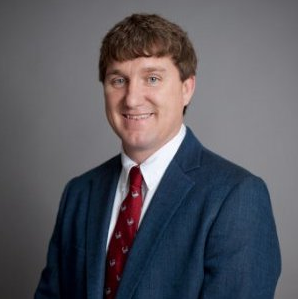Vision has carried Two Maids and A Mop Founder and CEO Ron Holt through ups, downs and way too many hurricanes.
Ron Holt has always had big dreams. When his job as a scientist stifled his vision of becoming an entrepreneur, he traded in his lab coat and bought a small, family-owned cleaning business in Pensacola, Florida. Now, ten years later, Two Maids & A Mop is a successful cleaning company with twelve locations spread across the southeast. In 2014, the company will expand its brand into the franchise market. The company’s growth has been exponential over the last few years, but that wasn’t always the case. In fact, Ron says there were many days during the early years when they almost closed their doors.
CBT: Was cleaning always your profession?
RH: I have a degree in Biological Sciences from the University of Georgia so my initial career path began inside a laboratory. My peers included world-renowned scientists and engineers, and I quickly rose through the ranks to become the company’s youngest laboratory director. It was a well-paying job that had great promise, but I couldn’t get past one thing: it was a job! I didn’t really understand the idea of entrepreneurship yet, but I did know that I wanted an opportunity to dream big. Working inside that lab everyday simply didn’t give me many opportunities to dream. So I created a plan of attack, saved my buns off and purchased a small, family-owned cleaning business in Pensacola, Florida.
CBT: What was your first cleaning business?
RH: The original name of my business was Koontz Services. It was the owner’s last name. I had already created a pretty big vision for our company so I knew that the name would have to change in order to scale the business down the road. I scoured the country for cleaning company names. Luckily, Two Maids & A Mop was available.
CBT: Tell us about those early years.
RH: The early years were rough – so rough that we flirted with closing our doors many, many days. My dream of operating a national brand of maid services was my only saving grace. I can still remember sitting inside a restaurant one Friday night wondering how we had just made payroll. We had experimented with lots of ideas and none had proven to be very successful. It took eighteen months before I ever received a paycheck and it took three years before I was the highest paid employee in the company. It was a heck of a ride, but those early days were essential in order for our company to be able to succeed today. I wouldn’t want to go back, but I wouldn’t change one thing either.
CBT: What was the business model upon which you finally settled?
RH: It took several months, but we finally figured out how to actually convert a lead into a client. Most of our clients loved the passion behind our business and wanted to give us a shot. Unfortunately, my passion didn’t make its way into the homes of our clients during the actual housecleaning. I’m a little different than most cleaning company owners because I have never pretended to be a great housecleaner. In other words, I never cleaned the homes in the beginning because my vision demanded that I think bigger. That sounds great, but the reality is that our initial clients hated our service. It was spotty, we were late often and the quality of our people was just plain embarrassing. I loved the business and I knew that I needed to figure out a way to get our employees to love it too. After several mistakes, we created the now famous “Two Maids Pay For Performance Plan.” Today, feedback from our clients’ directly determines our employees’ compensation level. It’s a revolutionary concept because it places all of the power in the hands of the customer. Our clients love it because it proves that we’re serious about quality control. Our employees love it because it allows each of them to write their own paycheck. And I love it because our employees have some skin in the game.
CBT: You mentioned trial and error. Tell us more.
RH: We still have a few original clients from our early days. I’m pretty sure they can tell you some funny stories about our business back then. We tried so many things, and we failed more often than not. One crazy idea allowed our customers to determine the rate of their cleaning. Talk about power – this gave our clients unbelievable power. Unfortunately, the theory behind the idea was much better than the reality. Word spread pretty quickly that a local cleaning company was giving away cheap cleaning services and we had to scrap the idea. We also experimented with profit sharing, manager for a day plans and other goofy ideas. They each sounded plausible, but they each taught us some valuable lessons about why they’d never been done before. That being said, it was a fun time because we were creating new ideas on a daily basis. The business was an incubator for the future and I knew that eventually something was going to stick.
CBT: Was it smooth sailing after the early days?
RH: We created the “Two Maids Pay For Performance Plan” in early 2004. The business took off shortly afterwards and we were finally beginning to see some light. That’s when the hurricanes decided to make the gulf coast of Florida their second home. We endured three major hurricanes within a twelve-month period starting in October 2004. The hurricanes literally crushed the local economy and devastated our business and clients’ homes. The business took a major financial hit and good times seemed like millions of years away. We lost more than seventy-five percent of our workforce and eighty percent of our client base. In the end, though, it was a blessing in disguise because it taught me that a conservative approach to growth and finances was mandatory for success.
CBT: How did your expansion begin?
RH: The business had expanded to three locations along the gulf coast of Florida. The concept was working and growing, but I was heavily involved in the day-to-day operations. The time had come to experiment with our next idea – absentee ownership. The hurricanes taught me that we probably needed to diversify away from the coastal areas, so our fourth location was in Birmingham, Alabama. It was a fairly easy choice because my wife’s family is from the area and the city is located within driving distance of most southeastern cities. Today, Birmingham serves as our corporate headquarters.
CBT: You now have twelve locations throughout the southeast. How do you manage so many offices spread over such a large area?
RH: The company has grown at an exponential rate over the last three years. It has been fun and exciting, but also extremely educational. We learned early in our growth curve that we needed to systemize every single task inside our company. Everything from how to clean a tile floor to how to process a credit card is now documented and systemized so that the same thing occurs in each of our twelve locations. We also developed a stringent, full-day quality control audit that is conducted inside each office every two weeks. The audit is designed to diagnose issues and remedy them. We serve a very wide geographical area, but our systems management allows us to deliver the same service in Charlotte, North Carolina as we do in Pensacola, Florida.
CBT: How do you explain your success?
RH: I believe this is due to my vision. All great businesses start with vision. You simply can’t be successful without it.
CBT: What does the future hold?
RH: The company recently opened its twelfth location in Chattanooga, Tennessee. Our next location is planned for Raleigh, North Carolina later in the year. In 2014, the company plans to broaden its geographical reach by franchising the brand. Eight franchised locations are expected in 2014. We have already received significant interest from potential franchisees, but we have a vision to control our growth to no more than eight locations per year for the next several years.
CBT: What is your advice for startups?
RH: Don’t get caught up in the art of housecleaning. That may seem counterintuitive because very few cleaning companies succeed without providing a valuable service. But I have witnessed many cleaning companies fail even though they provide a great service. Cleaning companies traditionally evolve from a one person operation into a real business with real employees. This evolution is the primary cause of many cleaning business failures. So start thinking of your cleaning business as a business from day one. Don’t try to be the best housekeeper and best manager – it’s impossible. Focus on your business, create a vision for your success and get started. Expect some roadblocks and expect some outright failures, but never lose sight of your personal vision.





